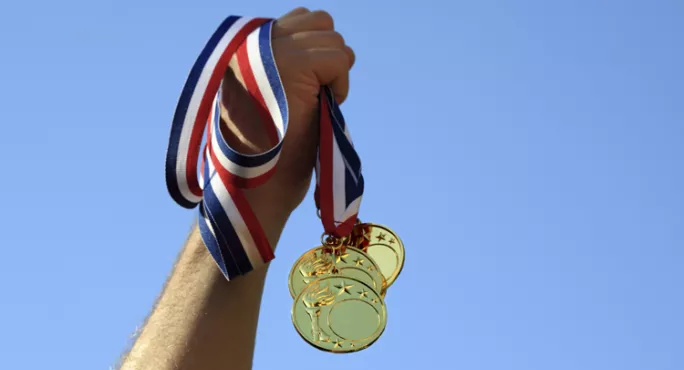Put yourself in the position of an impressionable young child hearing the word ‘talent’ being bandied around during coverage of the Olympic games in Rio. We hear that Jessica Ennis-Hill is a “talented” athlete; that Adam Peaty’s “talent” was spotted early; and what a “talented” bunch of cyclists and rowers Great Britain has.
The presumption is that talent is something you’re born with. It’s simple: you’re talented or you’re not.
Of course, anyone studying and adopting a growth mindset or reading the excellent work of Matthew Syed, knows this is absolute nonsense. Obviously people are born with different physiological strengths, but so much comes down to opportunity, circumstance and a desire to work hard, overcome failures and improve.
‘I practised non-stop’
I was a professional footballer for 14 years. I wasn’t born with a natural ability to kick a ball, just like I wasn’t born able to walk or ride a bike or talk. I became a professional because my dad loved football and I inherited his love of the game. I practised non-stop before school, after school and during school. There are photos of me at age 3 doing kick ups (I’d been practising since I was 18 months old).
The word ‘talent’ is thrown around everywhere in football. “Naturally talented” boys I played with were out of the game at 17 because they thought they didn’t need to work hard and that their natural talent would be enough. But the ones who truly become greats make huge sacrifices and often train harder and better than the rest of us.
‘Talent’ is a word that should be banned completely in schools. As a primary teacher, I’m extremely aware of the impact words can have on the young minds we teach. I want to help develop children who are resilient, ambitious and work hard to achieve their goals. I don’t want children to lack aspirations just because they weren’t born ‘talented’.
I know of a school where they highlight in yellow on the register all the children they believe are ‘gifted and talented’. So, everyday, for each subject, everyone in that class sees themselves as either talented and destined for a great future without having to work hard - or, even worse, they see themselves as lower than the others, with no chance of achieving what the illustrious ‘gifted and talented’ group inevitably will.
Stories to inspire young people
I’ve recently become PE co-ordinator at my school. Right now is the time to engage the children in leading active and healthy lifestyles. They have hopefully witnessed the inspiring scenes from the British athletes in Rio and I have my fingers crossed that they will also hear about the hard work, resilience and sacrifice it took those athletes to reach the top.
There are many relatable stories out there. British boxer Lawrence Okolie was bullied for his weight in school. In 2012 he was working in a fast food restaurant when he witnessed Anthony Joshua win an Olympic Gold medal. He quit his job and started training to be a boxer. Just four years later he is in Rio representing Great Britain.
And when Adam Peaty was 14 years old, he was swimming in the slow lane with 10-year old girls. But through huge dedication and effort, aligned with great coaching, he achieved Gold at the Olympics.
This is the type of story that an 8-year-old child needs when they feel down or when they head to the pool for a swimming lesson that they struggle with. They don’t want to hear that Okolie and Peaty were born talented. They want to know that Okolie and Peaty were once struggling, just like them.
Ben Burgess is a primary school teacher and an ex-footballer who played for Hull City and Blackpool. He tweets from @benkburgess
Want to keep up with the latest education news and opinion? Follow TES on Twitter and like TES on Facebook




